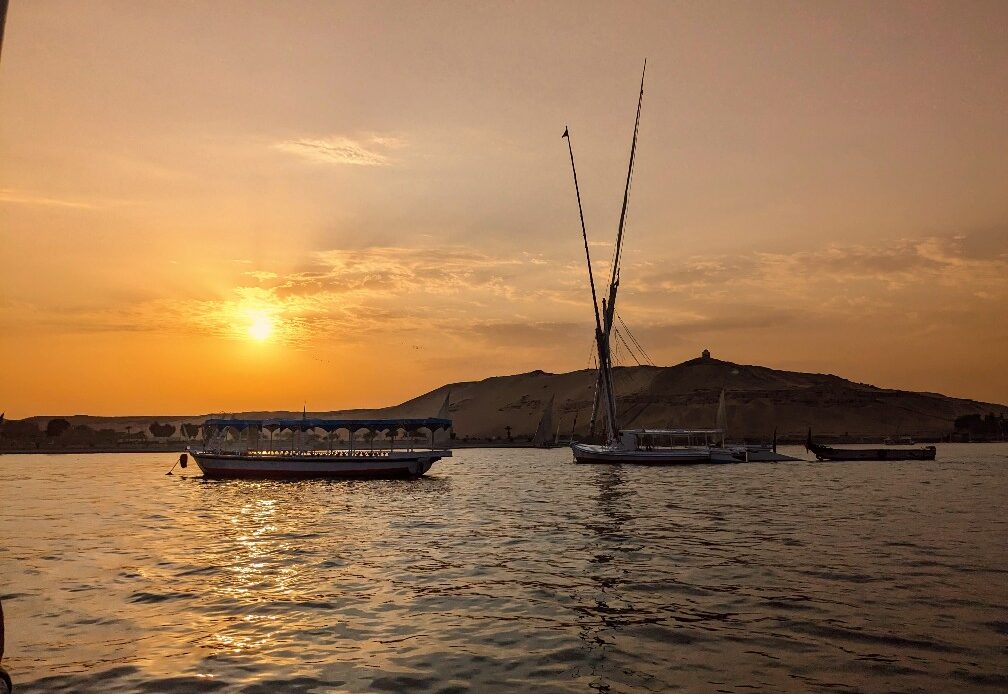
In September 2023, I spent two weeks in Egypt with G Adventures – my first time visiting the country. I spent the first week of my trip on a group tour (Boats and Bazaars), visiting the cities of Cairo, Aswan and Luxor and taking in sights including the pyramids, the Valley of the Kings and Abu Simbel.
I want to start off directly by saying that I had an amazing time on the tour and I would whole-heartedly recommend it to others. Our guide Karim was fantastic – really knowledgeable and extremely helpful and friendly – and the itinerary was well put together. (G Adventures often change up the itineraries of their trips based on customer feedback, so it’s likely that the agenda we followed might be adapted within a few months.)
As such, this post isn’t intended to be a detailed critique or review of the trip itself (although it is still based on my opinions) but my aim is just to offer some helpful tips for others embarking on the same tour. Basically, I’m trying to write something that I would have found useful while I was planning.
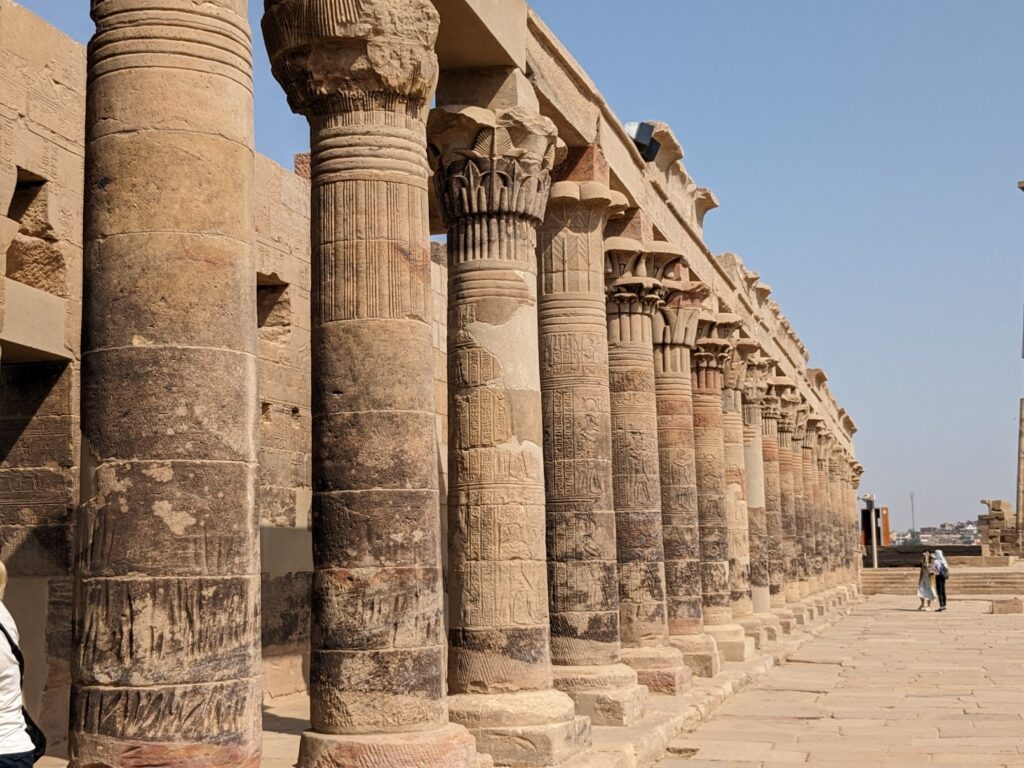
Egypt with G Adventures: making the most of the itinerary
The Boats and Bazaar tour itinerary covers some of the basics of a classic Nile river tour: the pyramids, a felucca trip on the Nile, the cities of Aswan and Luxor, for example. But the agenda is intentionally lacking some showstoppers, in order to offer a more budget alternative to G Adventures‘ Best of Egypt tour. As such, you‘ll need to fork out for a few of the add-ons if you really want to make the most of your time in Egypt.
Our guide Karim suggested three add-ons that were ‘essential : Philae Temple, Abu Simbel and the Valley of the Kings. The latter two I had already booked on the advice of a friend and the third I booked in addition on our second day.
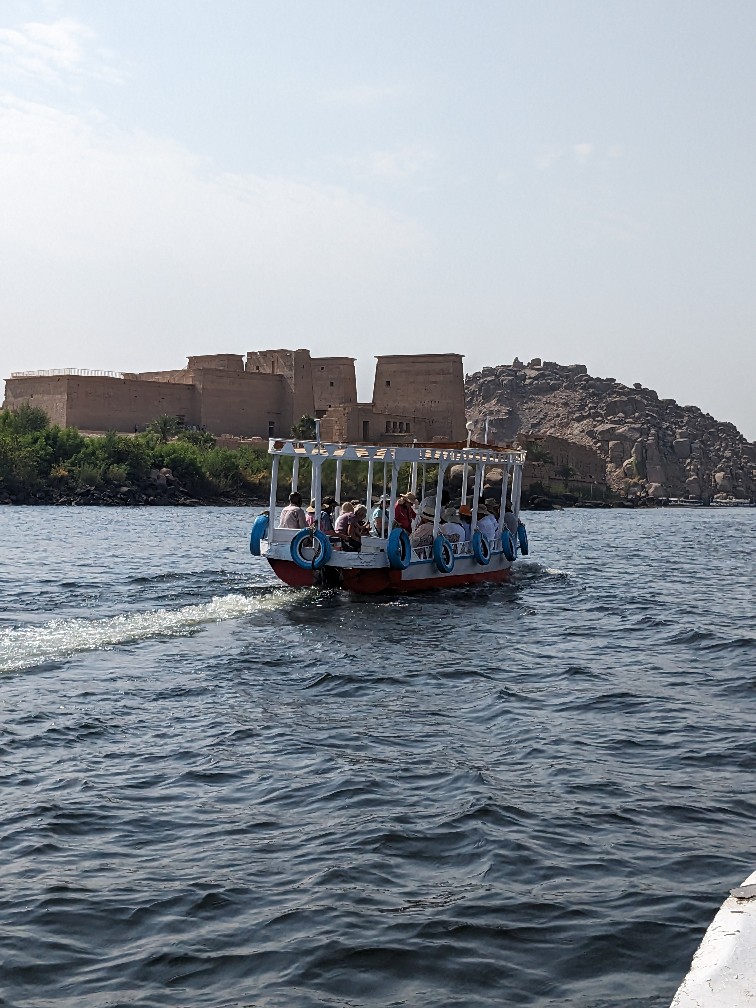
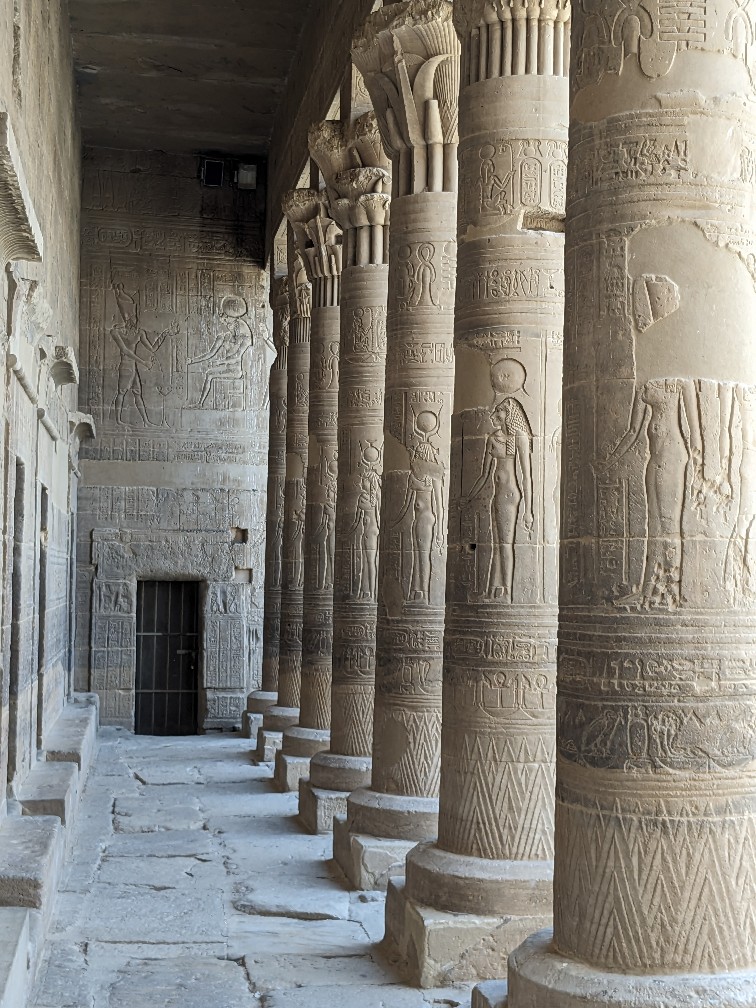
Add-on activities: Philae Temple
I am really, really happy with the add-on activities that Karim recommended. The visit to Philae Temple included a nice little boat trip on the water, which meant the temple and its island slowly came into view, meaning you could really appreciate the dramatic setting. The temple itself is pretty spectacular to look at, but two things really stuck in my mind which I think really made it unique.
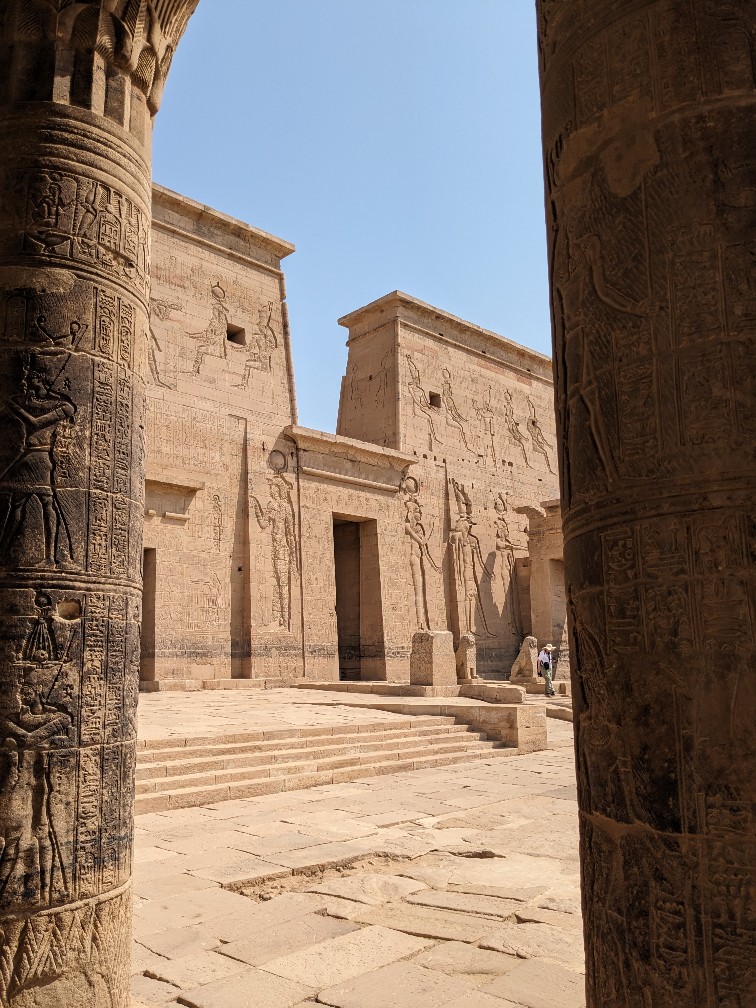
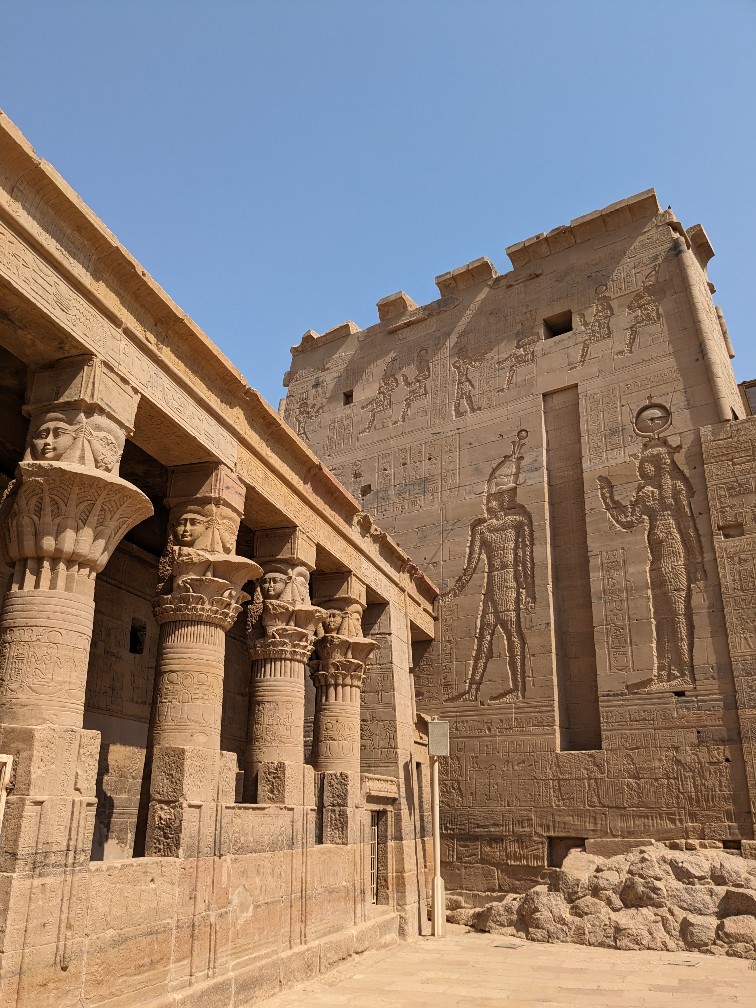
Firstly, the temple itself was rebuilt and relocated after the flooding of the first Aswan Dam and – unfortunately – was not done perfectly, leading to certain sightlines being skewed. Secondly, while the temple was originally built by the Egyptians to honour the God Isis, it was subsequently found and used as a Christian place of worship, whose priests then attempted to remove the depictions of Egyptian gods and replace them with Christian symbols. This layered and complicated history of Egyptian monuments was something which really drew me to Egypt in the first place, but was something most obviously on display here at Philae. I would definitely recommend visiting here.
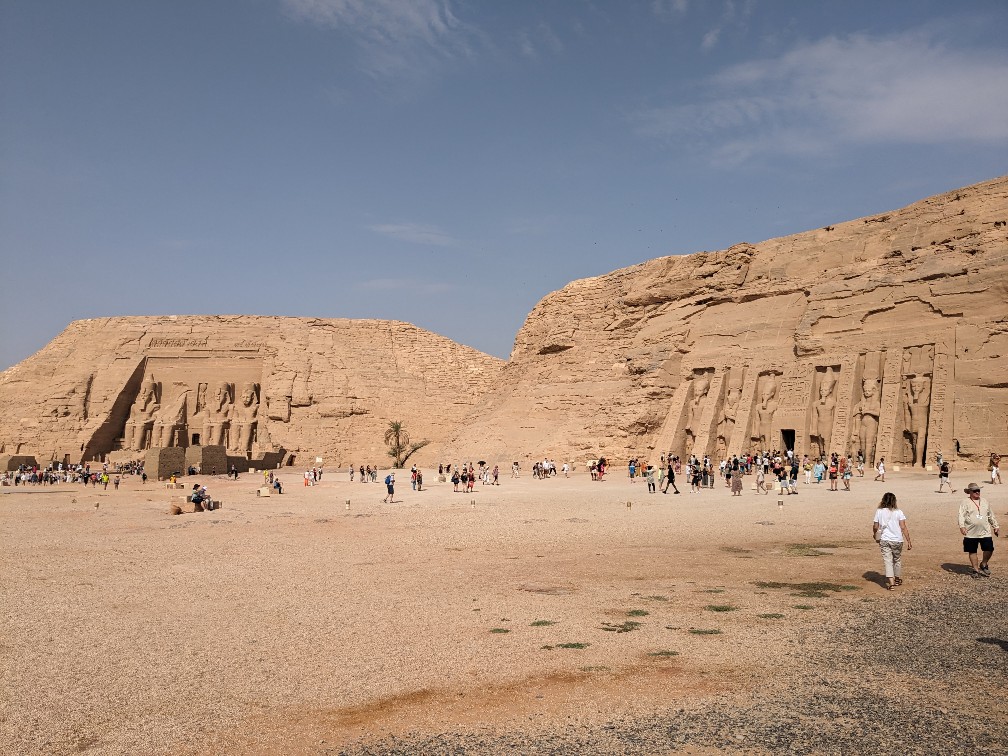
Optional extra: Abu Simbel
When I asked a friend what was the single best thing he did on his trip to Egypt in 2019, he mentioned two things: Abu Simbel and Valley of the Kings.
Now visiting Abu Simbel is described as a half-day trip, but I will say straight up that it is not: we left the hotel at 4am and were only back at the hotel at 4pm. So be realistic about how much time you will have in Aswan afterwards. The journey here is a long one. Abu Simbel is located much further south than Aswan, closer to the border with Sudan. The road from Aswan is opened every day at 5am for a specific amount of time (hence the early start) and it took us about four hours one-way (including a break).
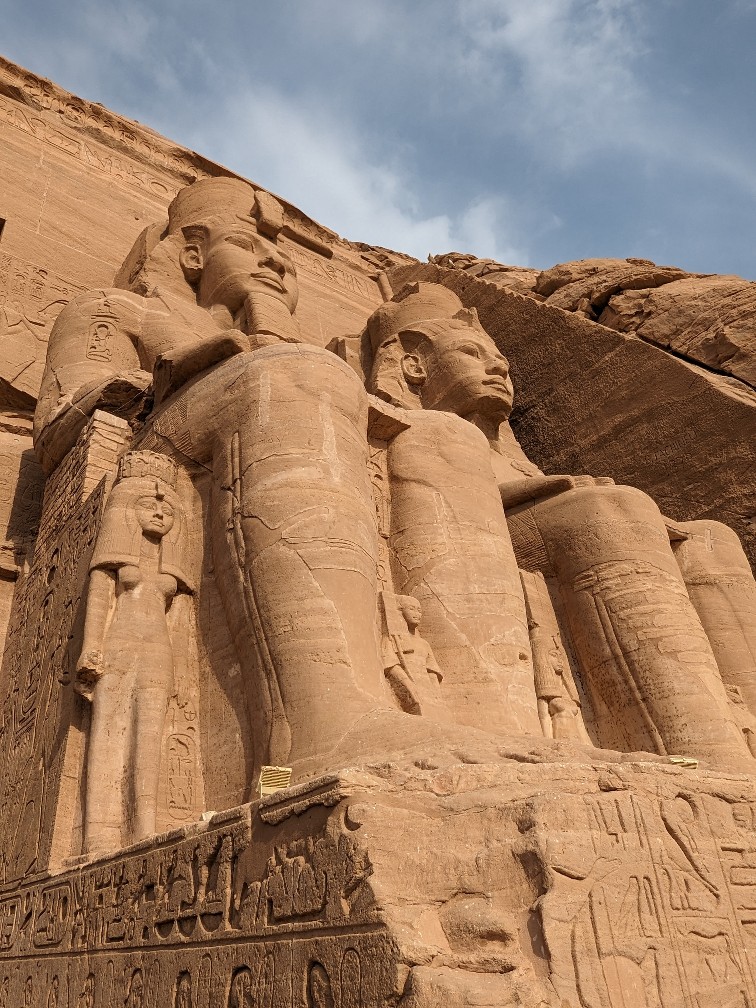
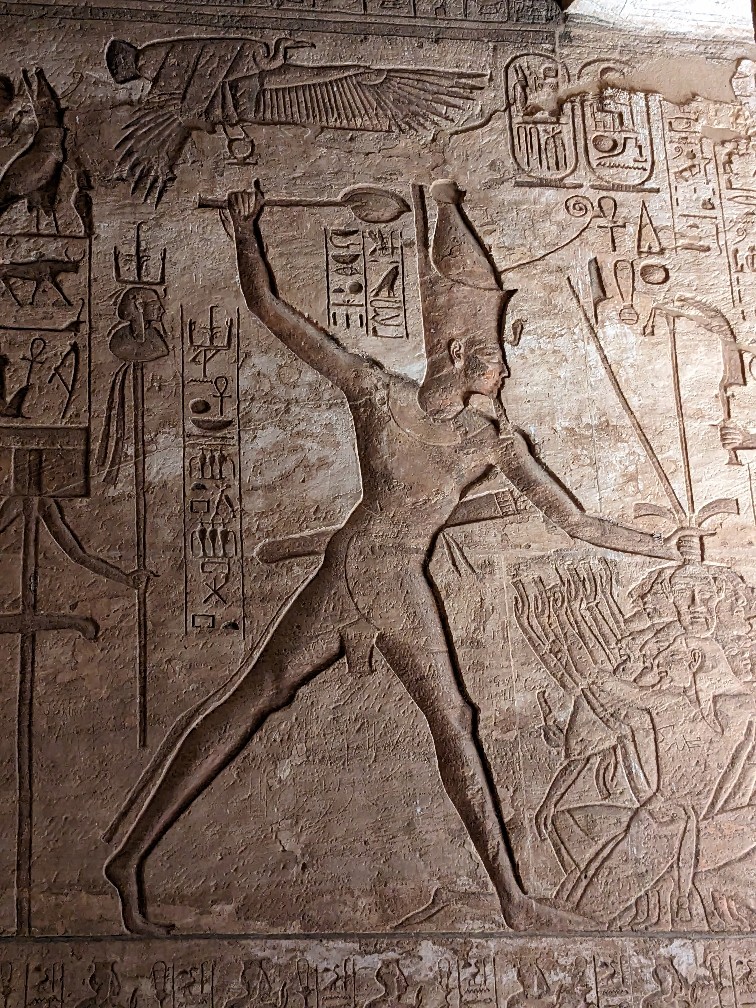
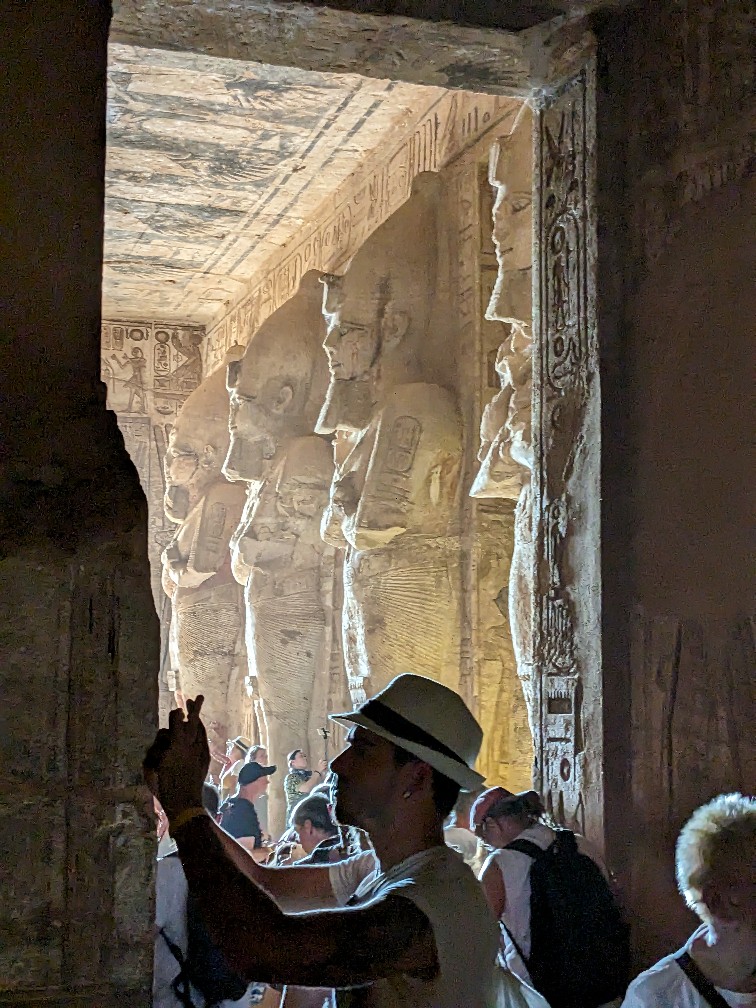
But how was Abu Simbel itself? It honestly feels quite difficult to put into words the sheer scale and impressiveness of Abu Simbel and the fact that it too was relocated and rebuilt only adds to the wonder of it. The site itself has a small exhibition on the international effort to save the site during the construction of the Aswan High Dam – this seriously blew me away and is definitely worth taking some time to explore.
Visiting the two temples is a truly amazing experience. It really does feel unmatched in Egypt. Photos really can’t do it justice.
But be warned: it is absolutely packed out with people – and I have to be honest and say that does take away a bit from the experience as you are genuinely wedged in shoulder-to-shoulder. Is Abu Simbel worth purchasing as an add-on? Absolutely, but it wasn’t the highlight of the trip for me.
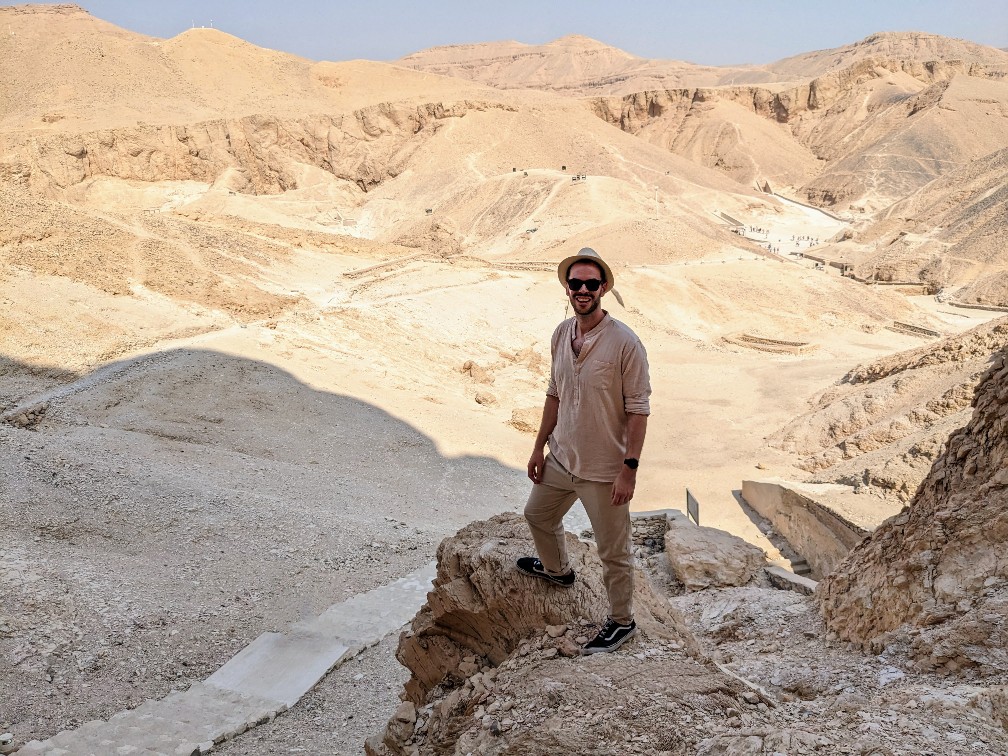
Valley of the Kings with G Adventures
The Valley of the Kings was definitely one of the highlights of the trip for me – there was a fair bit more independence, although it was also very crowded.
The entry ticket (covered in the cost of the add-on) gets you into any three tombs of your choosing, plus you can pay extra (not included) to visit three „top-tier“ tombs: Seti I, Ramses V & VI and Tutankhamun. I opted for Seti and the Ramseses. My advice would be: go to the paid tombs first thing. I ended up in the tomb of Ramses V & VI with just four other people by heading there directly and it was fantastic.
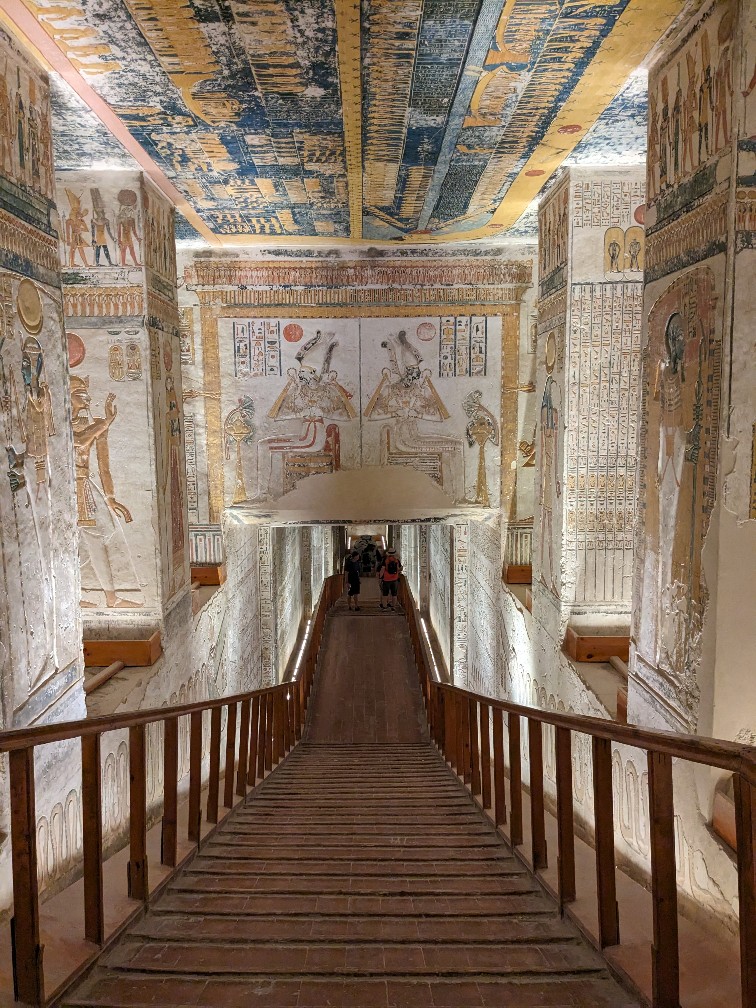
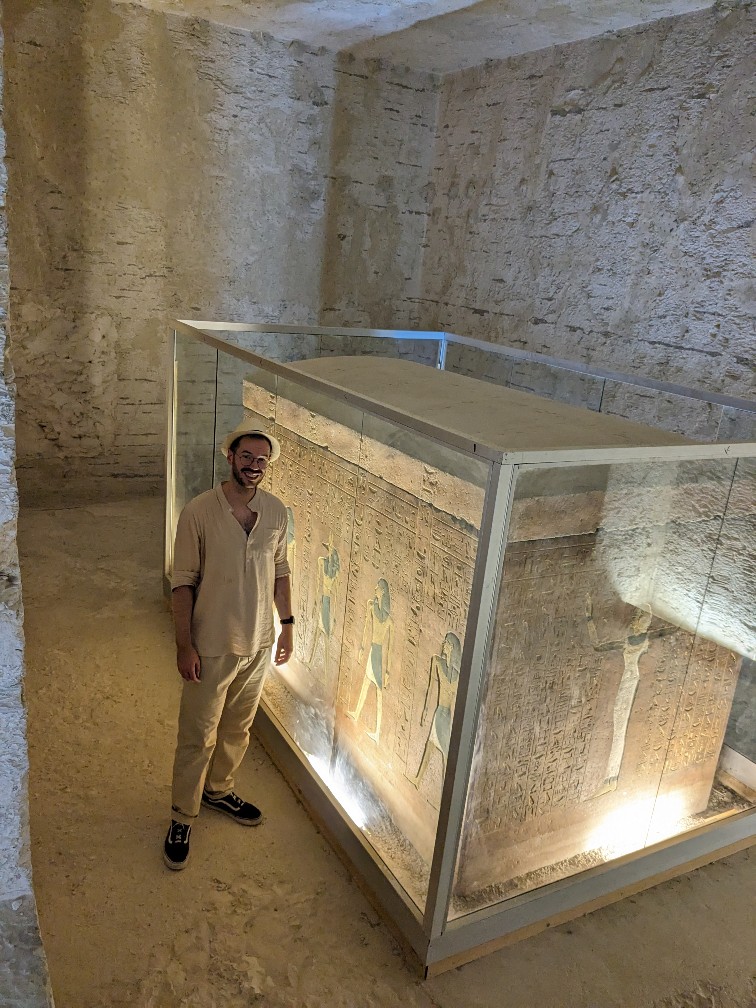
In fact, I actually tried to deliberately avoid the crowds by not visiting the most popular tombs. I think this has to be a personal choice, but for me, I tried to priortise the experience of my visit above ticking sights off a list. (As a result, I ended up visiting Thutmes IV which I would not recommend – it’s very bare buuuut I did end up there entirely by myself which felt very cool.) I also visited Merenptah which was very long and deep and Ramses IV which was very beautiful and extremely colourful.
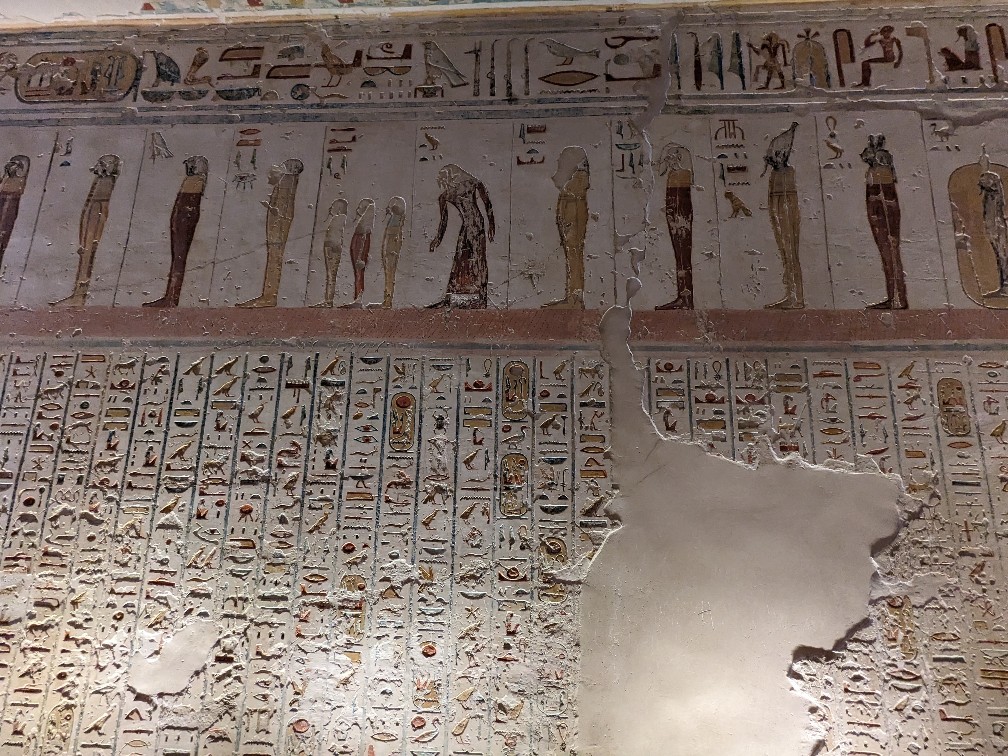
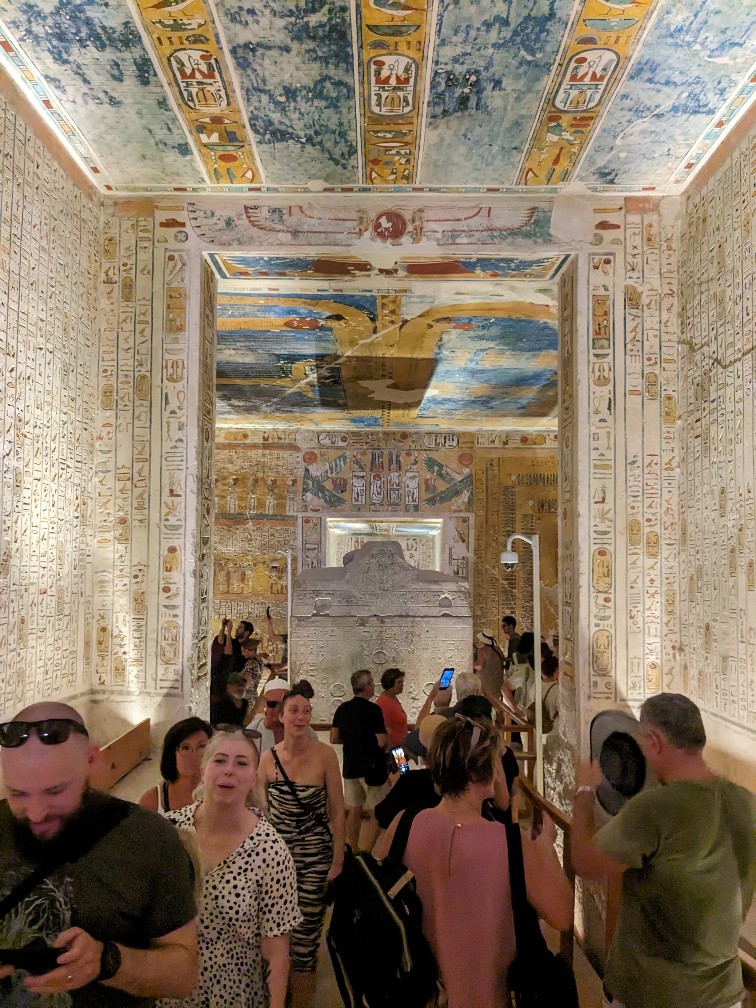
But Seti I was the absolute star of the show and definitely worth the extra cost (I didn’t include any of my photos here as they definitely didn’t do it justice, so instead check out this post from Walk My World). The tomb is just huge and the colours and details are incredibly well-preserved. The high cost also keeps quite a few of the tourists away, which means you have a more relaxed experience with more time to take it all in.
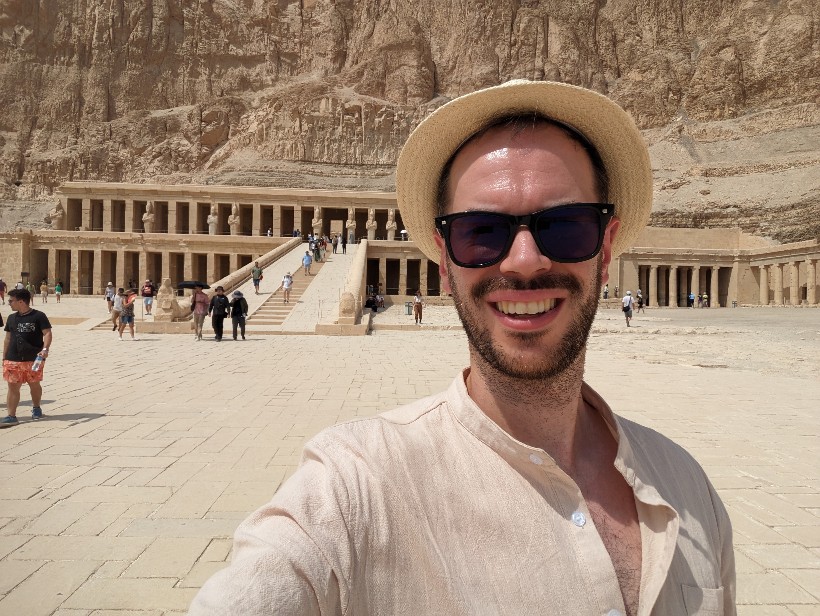
The add-on also includes a visit to the Mortuary Temple of Hatshepsut, located just next to the Valley of the Kings. I’ll be honest and say that I was definitely struggling with the heat and the sun at this temple (it was 39°, which was relatively cool compared to the highs of 46° we had the day before…) The temple is very imposing, but there’s not a huge amount to see in my view.
The verdict? Valley of the Kings should be the first choice of anyone looking to book add-on activities.
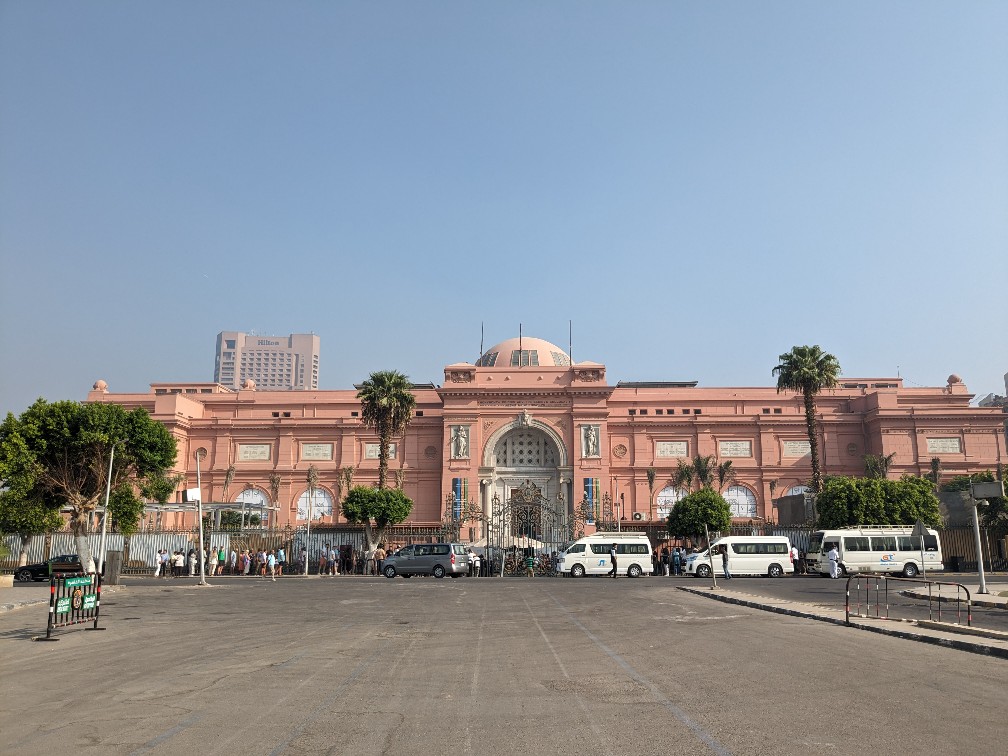
Additional activities in Cairo
A few in our group also did the additional tours offered in Cairo (Coptic Cairo and Saqqara) and I heard really good things. I had a day in Cairo before the start of the tour and I headed to the Egyptian Museum and then to Hanging Church in Coptic Cairo – both of which were really easy to get to on the Metro. Personally, I think the Egyptian Museum would have been amazing to do again after the tour, as you have a lot more context and more information, but unfortunately I didn’t have time.
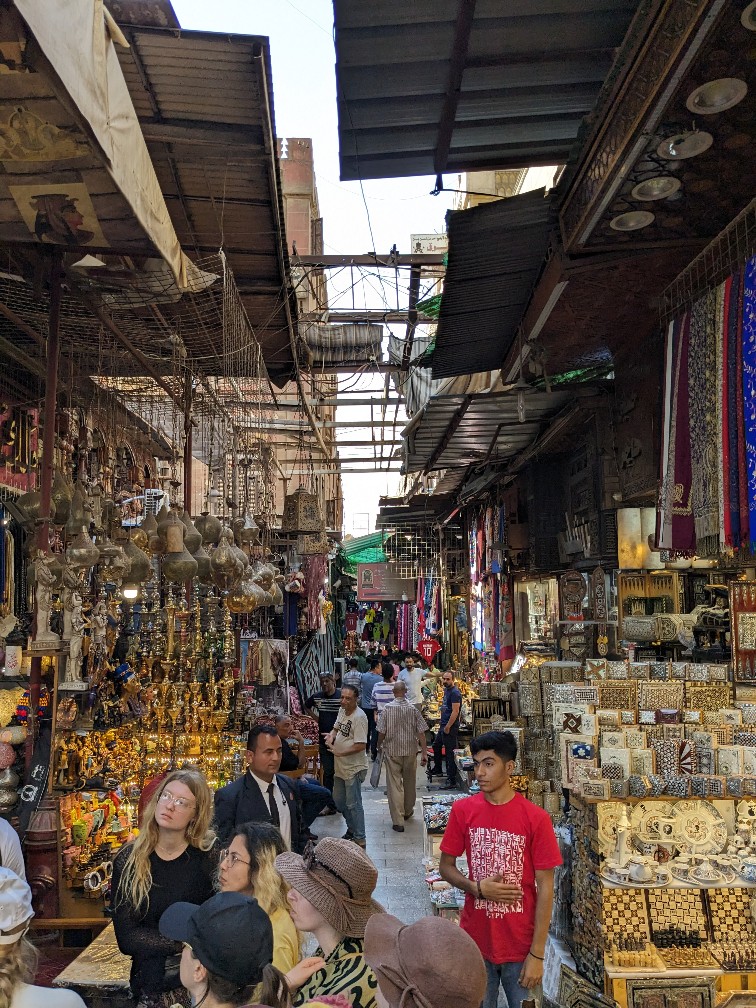
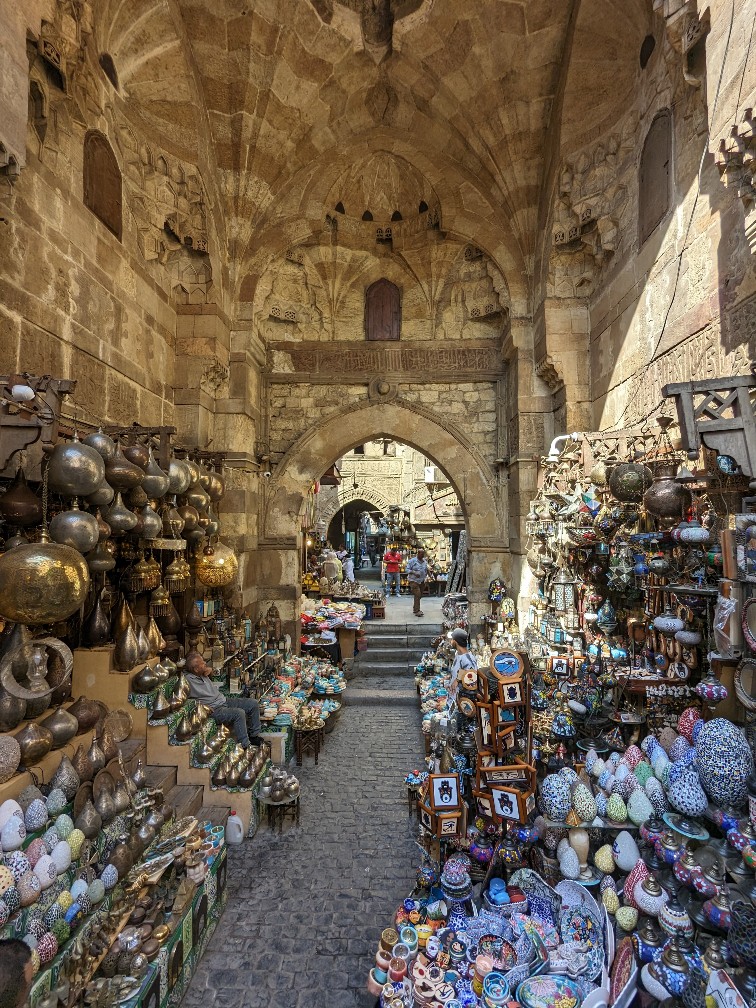
Organising your free time on the Boats and Bazaars tour
The unique element of the Boats and Bazaars tour is just how much free time you are given to explore areas independently. It can feel a bit daunting to suddenly be exploring Egypt by yourself, but our tour guide Karim really went above and beyond to organise some additional transport or taxis for us to get to where we needed to be, as well as organising the majority of our meals – even in our free time.
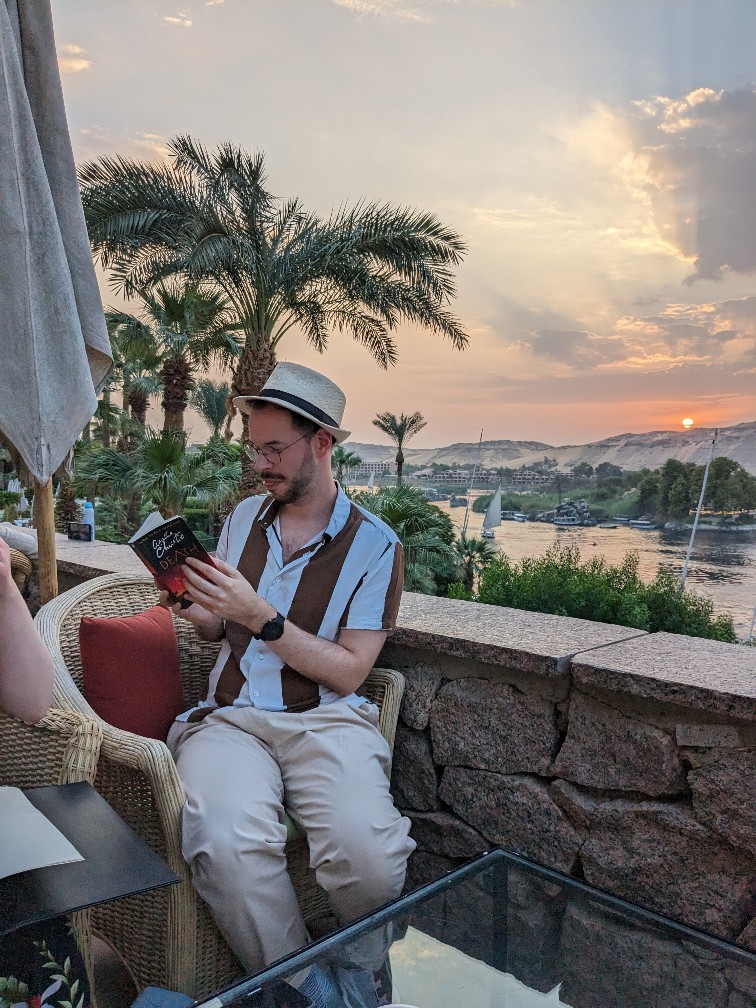
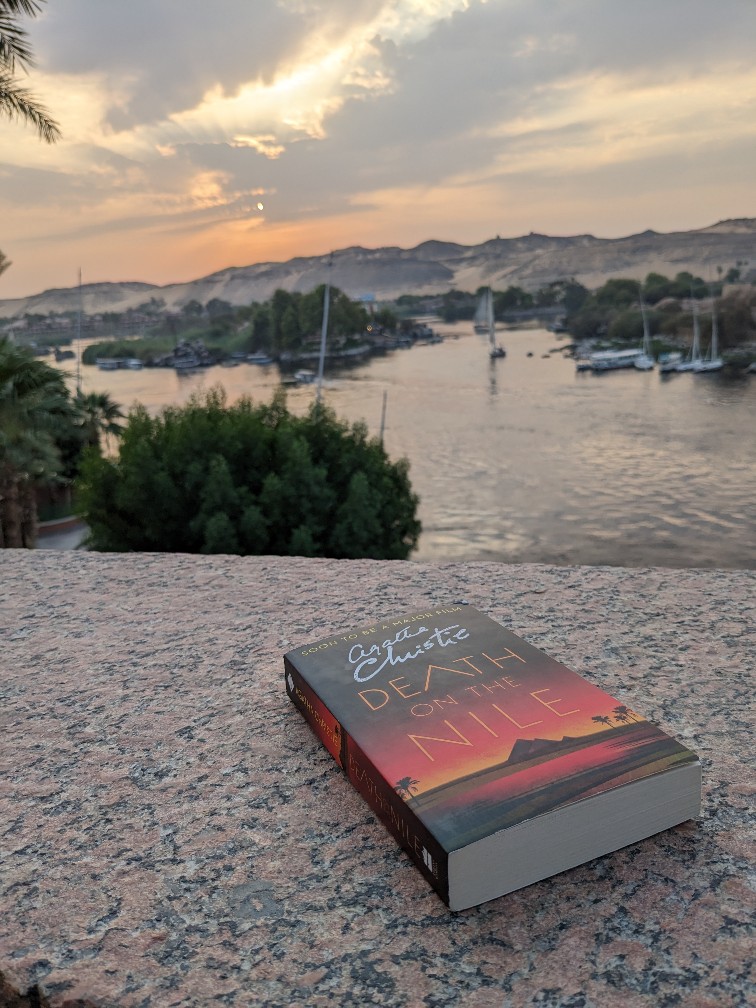
Things to do in Aswan
The absolute highlight in Aswan for me was visiting the Old Cataract Hotel. I am a huge nerd for Hercule Poirot and the evocate ITV adaptations in the 80s and 90s are part of what really attracted me to Egypt. The Old Cataract Hotel is where Agatha Christie supposedly wrote Death on the Nile, and it’s also where the characters stay while in Aswan. (I read the book during the trip, and in parts our itinerary matched theirs, which was very cool.)
The hotel is still a very fancy luxury hotel but you can visit for a drink on the lower outdoor terrace. On arrival, you have to pay for a 500 EGP voucher to ensure a minimum spend, but then this is redeemed against your drinks. (Despite what you might read on TripAdvisor, this is a really smooth, pain-free process.) The bar also serves “snacks” which turned out to be a giant burger and fries and was genuinely delicious.
Things to do in Luxor
I would say that Luxor has a lot more to do in your spare time (although I didn’t like the city as much as Aswan) so it’s a shame that the time there is so limited. Here’s a brief overview of things I did (and didn’t) do:
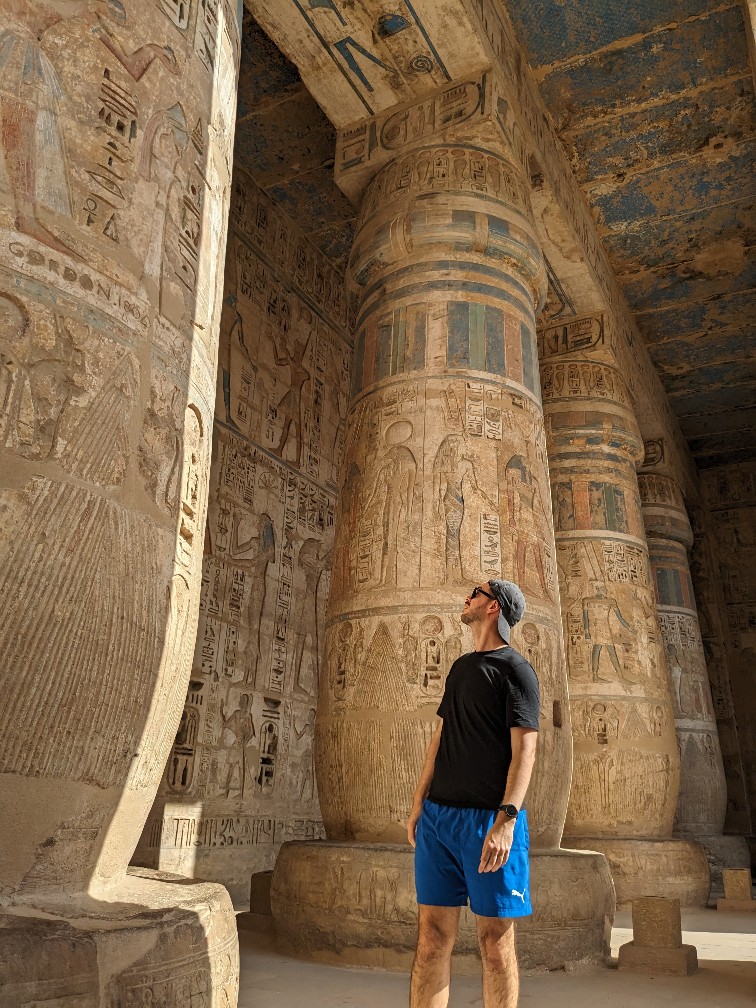
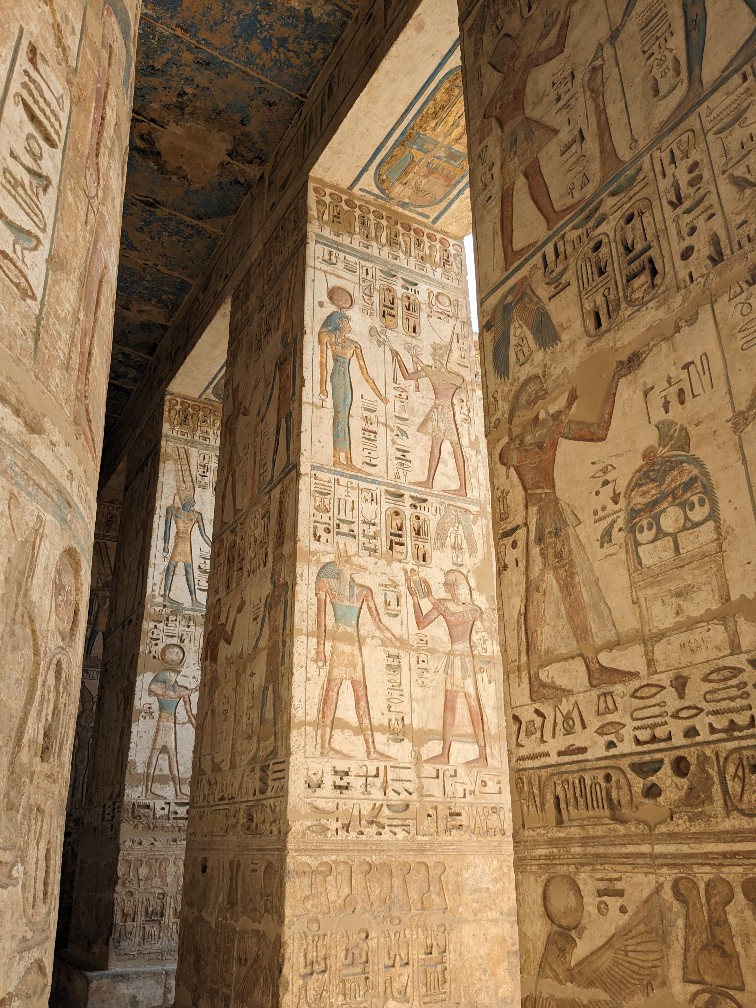
Medinet Hebu Temple: located on the west bank and close to G Adventures‘ partner Funtasia, this was my favourite temple of the whole trip. The site is huge and has the dramatic backdrop of the mountains of the Valley of the Kings. The colours have been really well preserved here too, plus the depth of the engravings makes it really unique – some of the hieroglyphics have been carved so deeply, you can fit your hand inside. The fact it lies on the West Bank also means far fewer visitors.
Winter Palace Luxor: another very fancy hotel, we popped in here for an afternoon drink and were told by a member of staff to „just act like a guest and walk through to the gardens“. The hotel interior is incredibly ornate and the gardens feel like a true little oasis in the heart of the city. They also had the fanciest toilets. (Link)
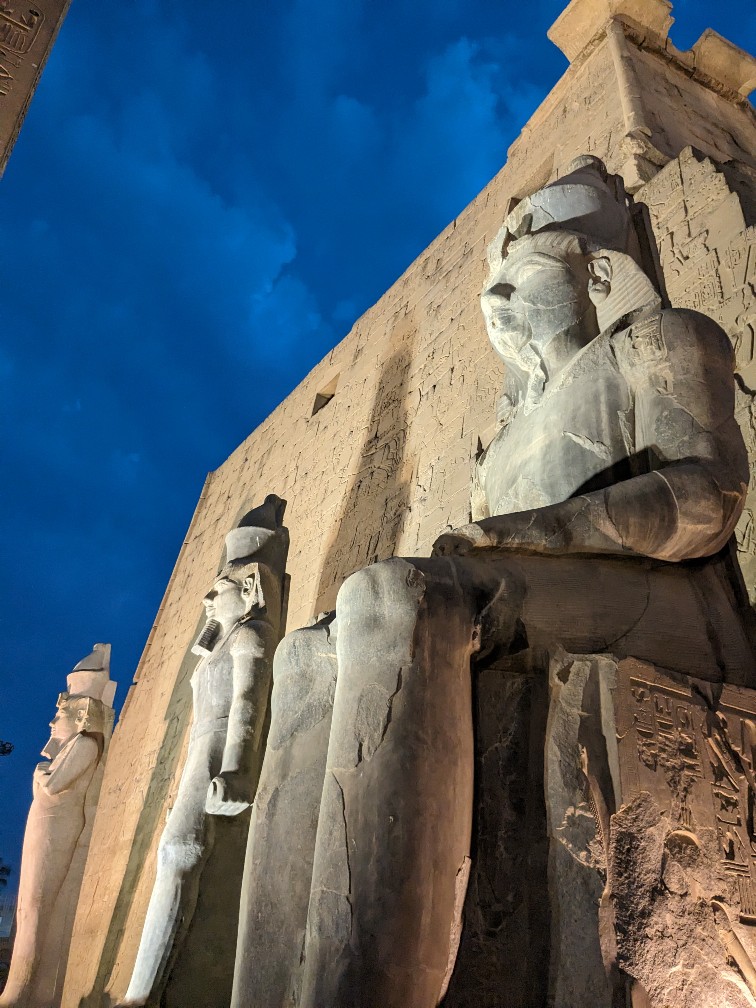
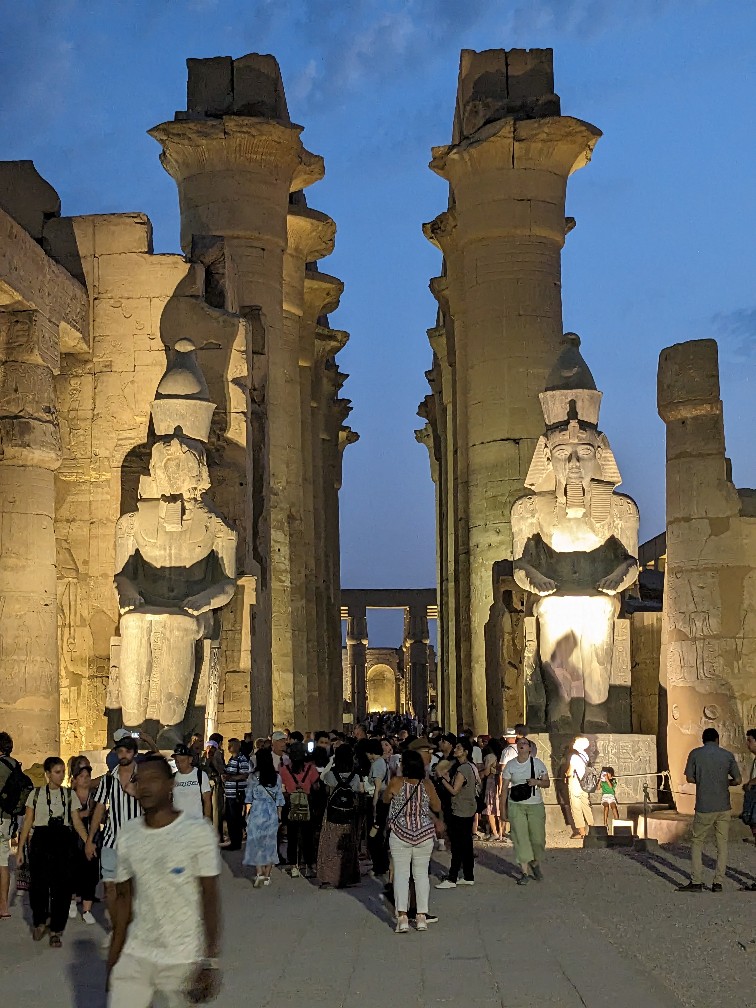
Luxor Temple: this temple is located right in the heart of the city. Karim recommended we go around sunset and I am so glad that we did – watching the light change and the shadows creep in and steadily turn to darkness was a really special experience and it was the only temple I visited at night. It’s obviously a very busy time to visit, but it is totally worth it.
Emilio Hotel rooftop pool: this was a great place to spend time when it was just shy of 40° degrees. We even enjoyed a glass of Rosé or two. (Link)
Karnak Temple: I didn’t visit Karnak Temple in Luxor, despite it being high on my pre-trip list – read more below.
For travel advice in Egypt away from the Nile, check out this itinerary for visiting the Siwa Oasis.
Practical tips for a first time visit to Egypt
There are a few things which I can advise doing while in Egypt, based on my experiences:
- Glue your guidebook to your hand! Our guide Karim was so, so knowledgeable, but at many sights I really wish I had still taken my guidebook with me while exploring a site independently. My Lonely Planet guide contained such a huge level of detail on many of the temples and the Valley of the Kings and where was mine? In the hotel. Many of these sites don’t have great signage or written information and your guide will likely give you a good overview and then encourage you to explore on your own. Use your guidebook to complement their explanations.
- Get an Egyptian SIM – Karim organised this for us at Giza station while waiting for the night train. The WiFi was very patchy in the hotels we stayed in and free Wifi at bars and restaurants was not common.
- The dress code is actually very relaxed. I read a lot about how best to show respect and not cause offensive while in Egypt, investing in lots of long linen pants. In reality, tourists are in shorts everywhere and the locals are very much unphased, particulary at popular tourists sites and cities. I obviously can’t speak to the experience of women travellers in Egypt, but for men I found it to be very relaxed. Our guide advised that caution was only needed when visiting religious sites and smaller towns or villages.
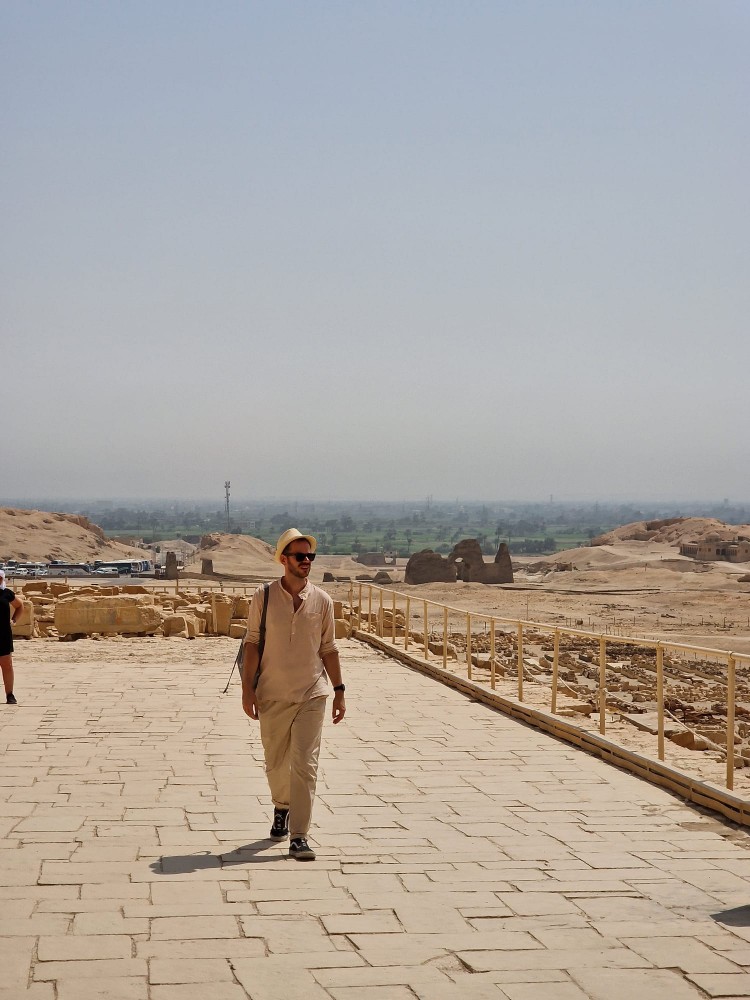
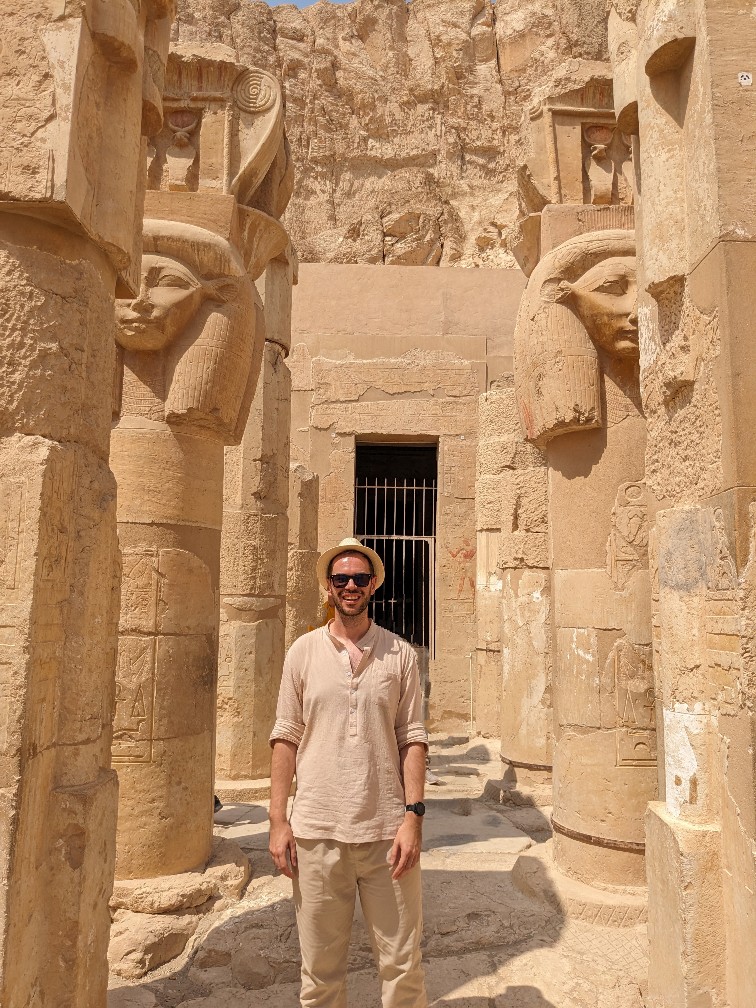
- Using the Cairo Metro is actually super easy. It costs 5 EGP (around €0.15) for 9 stops in one journey. There are ticket windows to buy your ticket – simply say ‘five’. Just make sure to hold on to your ticket for exiting at your destination, or else you might be taken to speak to security, as I was…
- Be prepared to haggle for almost everything. A good tip I noticed from others in my group is that often while haggling, it is easier to add more items „to your basket“ for the same price than to bring a price down.
- September in Egypt is still summer! I really expected that things would be cooling off in the final week of September, but we had daily temperatures of around 38-46°. To be honest, it was manageable as we were often on and off the air-conditioned bus, but if you visit at this time – make sure to be prepared for the heat.
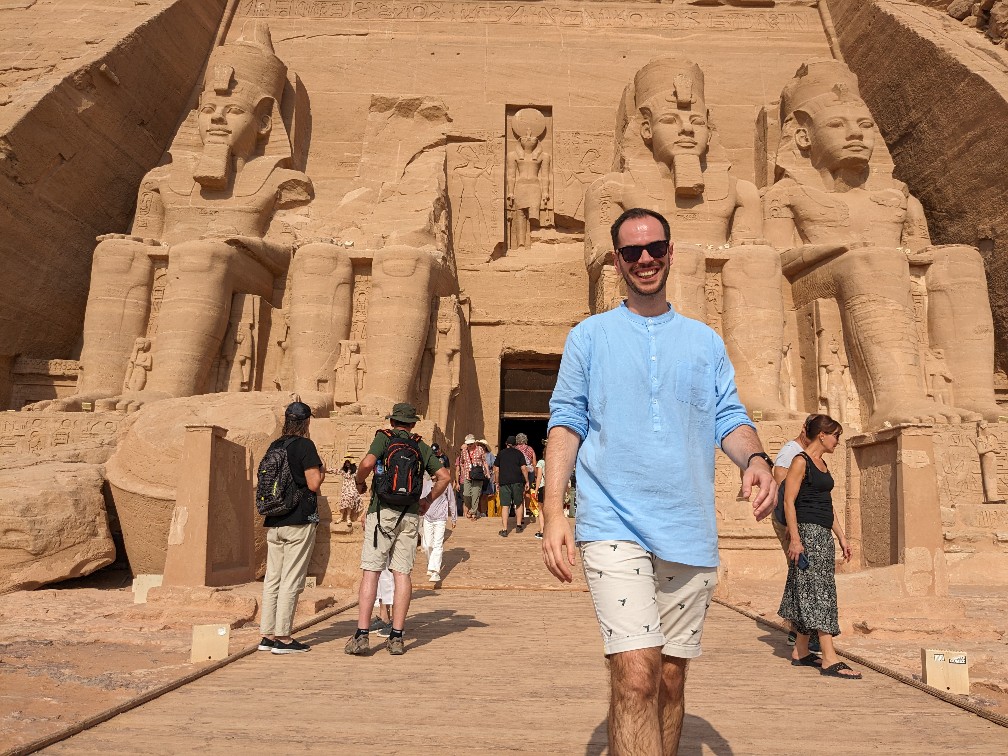
A note on temple/tomb fatigue
The pace of the Boats and Bazaars tour is intense – there’s no getting around it. You will explore thousands of years worth of history and three cities in just seven days. You will get tired. But I also experienced a different kind of exhaustion, which I like to think of as tomb or temple fatigue.
The historic sites you will visit are inspiring, intimidating, mind-boggling and also – a bit overwhelming. I found towards the end of the trip that I was getting a bit exhausted by the sheer number of the tombs and despite each one being an incredible piece of human history, some began to blend into each other and I felt simply fatigued.
My way of dealing with this at the Valley of the Kings was to focus on the experience of visiting the tombs, opting for the less busy ones. Similarly, on our last day, I really had to ask myself: do I have the energy to visit Karnak Temple? Despite reading so many glowing reviews on the incredible scale of the site (it’s also the second-most visited site in Egypt after the pyramids), but I just needed a break and headed to our rooftop pool instead. And honestly, I have no regrets.
I have no idea if people often encounter this self-coined phenomenon, but I think it’s just worth remembering that you can’t do everything and it’s OK to skip sites or to feel a bit numb to your sixth or seventh temple of the trip. You might be on a group tour, but you’re still on your own individual trip: make it your own and listen to what you want and need.
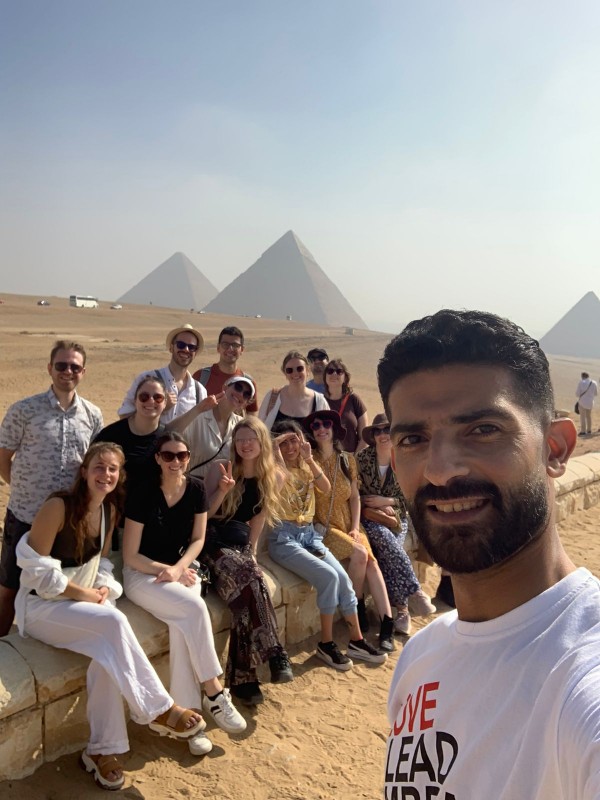
Visiting Egypt with G Adventures: my thoughts
Visiting Egypt with G Adventures was actually my first ever organised group tour. I wasn’t sure how I would enjoy it after 10+ years of backpacking and solo independent travel, but I am pleased to say that I really enjoyed the experience.
Exploring Egypt with a guide simply adds so much value – not only do you have an on-hand guide to explain the history of the sites to you, as well as the significance of some of the depicted scenes, but all transport and logistics were taken care of, and we had a fantastic crash-course into Egyptian food and culture.
After the tour, I spent a few days travelling solo, largely to the Siwa Oasis, and spending 8 days on the group tour was the perfect preparation. I believe I got a LOT more out of my trip thanks to G Adventures and especially Karim. I would fully recommend it.


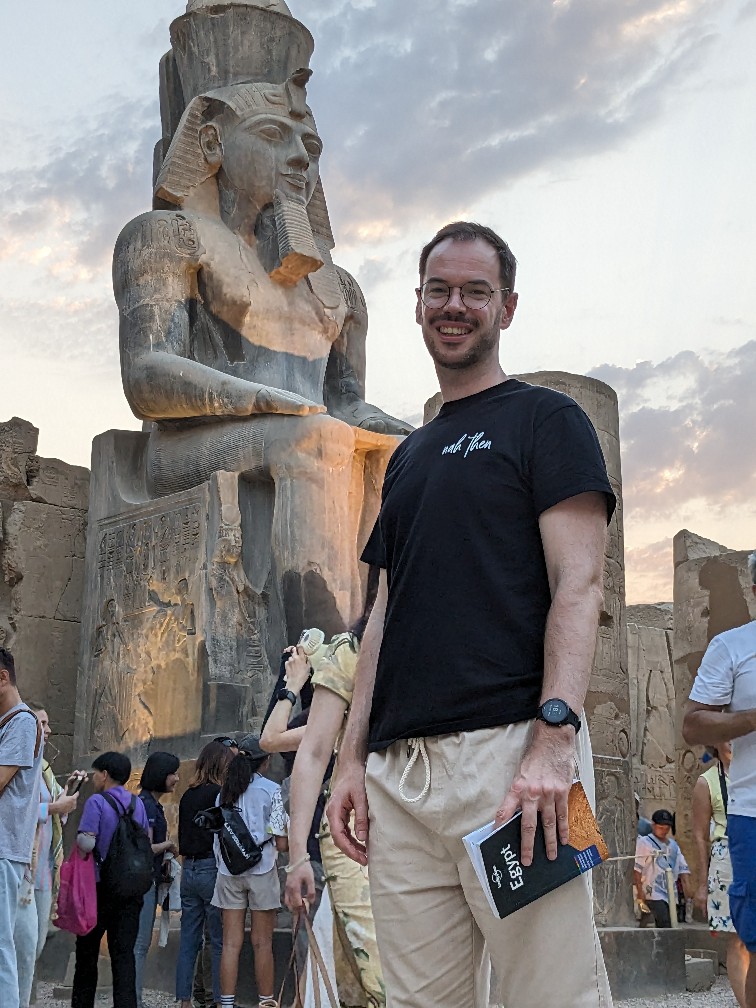
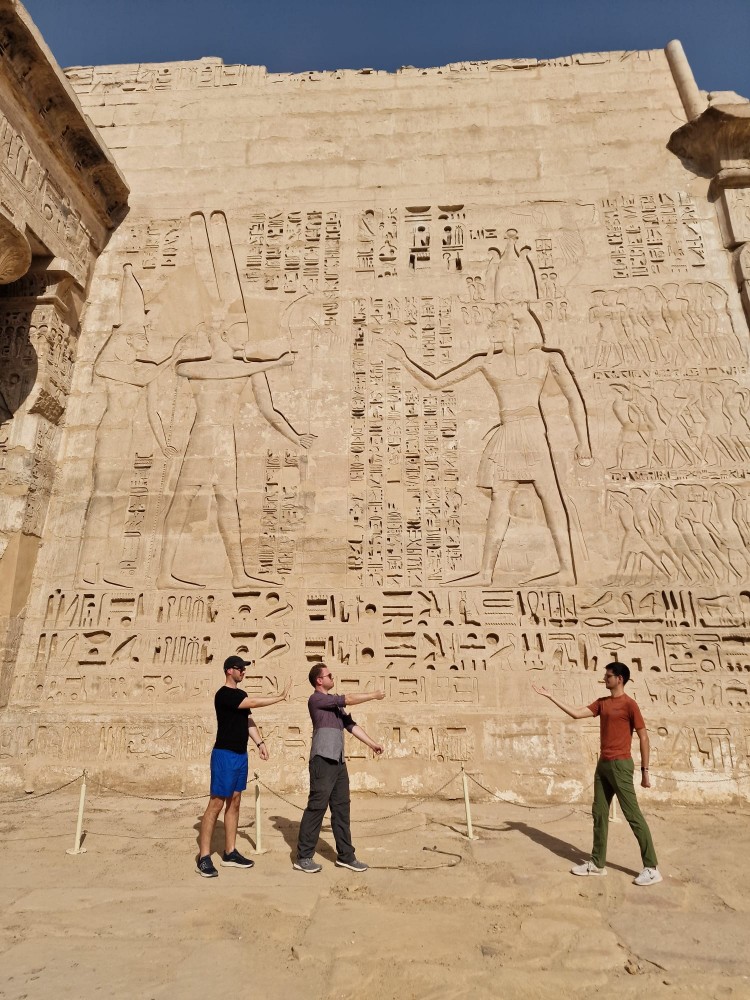
Top-notch Egypt travel agency for unforgettable experiences and adventures!
best egypt travel agency